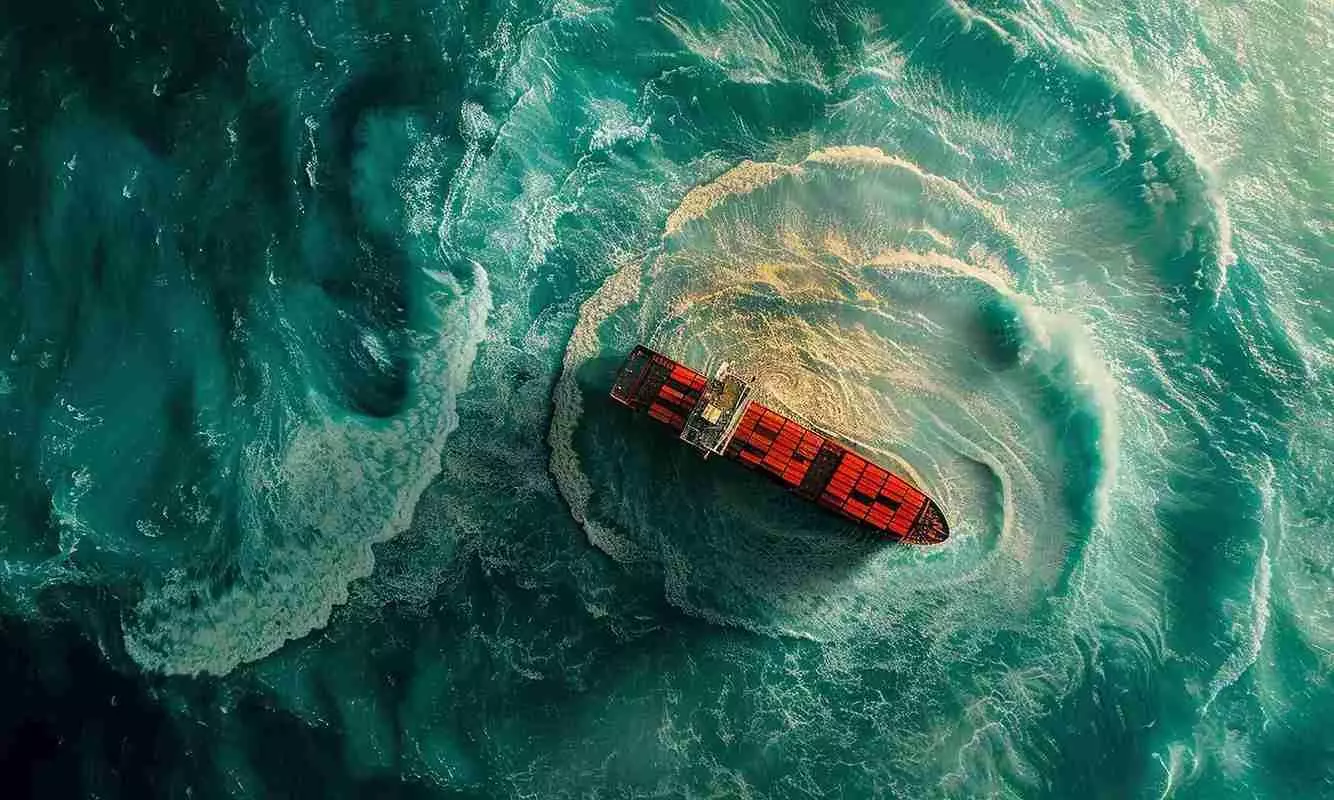
Exporters brace for freight, insurance surge as Israel-Iran conflict worsens
Escalating Israel-Iran conflict threatens key trade routes through Red Sea and Strait of Hormuz, hikes insurance costs and freight charges for Indian exporters

The escalating conflict between Israel and Iran is beginning to ripple through global shipping and insurance markets, with Indian exporters already experiencing a rise in spot insurance costs and preparing for a steep hike in freight charges.
While trade has not come to a standstill, the situation is growing increasingly precarious for exporters who rely on the shipping corridors that are now under threat.
Strategic shipping routes at risk
The Red Sea and the Strait of Hormuz are critical trade routes for India.
According to the Federation of Indian Export Organisations (FIEO), nearly 80 per cent of India’s merchandise trade with Europe and more than a third of its total exports, including shipments to the United States, pass through the Red Sea. That corridor also accounts for around 30 per cent of global container traffic and 12 per cent of total world trade.
The Strait of Hormuz is just as vital, carrying two-thirds of India’s crude oil imports and about 21 per cent of global petroleum liquids, say industry estimates. Any disruption along these corridors would raise freight costs and put upward pressure on domestic fuel prices.
Any forced diversion via the Cape of Good Hope would add between 14 and 20 days to transit times, pushing up freight costs by as much as 50 per cent, according to sector estimates.
Also read: Stock markets trade lower in early deals amid Israel-Iran conflict
Surge in spot-insurance demand
Exporters, especially those shipping through high-risk zones, have begun to turn to spot insurance to manage new uncertainties.
Unlike annual marine insurance policies that cover marine ships, freights and rigs over a 12-month period, spot insurance provides coverage for a single shipment and is typically bought at short notice. It is particularly useful when regular contracts do not fully account for war-related disruptions or emergency rerouting.
Insurance platforms such as Mikargo247 have reported rising demand from Indian exporters seeking short-term coverage for valuable consignments.
How export goods are normally covered
Before goods leave the port, exporters typically secure two kinds of coverage. Marine hull insurance protects the ship itself, while marine cargo insurance safeguards the goods in transit. Hull insurance premiums are relatively low, usually between 0.1 and 0.3 per cent of the ship’s total value. Cargo insurance, on the other hand, can be purchased either as an annual blanket policy or as a spot cover for specific, higher-risk shipments.
The insurance process involves selecting a policy type, submitting documentation such as invoices and bills of lading, and receiving a premium calculation based on cargo value, route risk, and mode of transport. Claims require proof of loss, including photographic evidence or reports from surveyors, and often involve multiple parties, especially if different insurers have covered the hull and cargo.
Former United India Insurance CMD Girish Radhakrishnan pointed to recent peacetime examples to illustrate how layered marine insurance can be. In the cases of the MV Princess Miral and MV Alliance, which sank off the coast of Kochi recently, multiple policies came into play. While the ship itself was covered by its owner’s insurer, the goods onboard were insured separately by the exporters, and claims had to be settled across a network of underwriters.
Also read: Why closure of Strait of Hormuz could double crude oil prices in India
Indian flag seen as a safety advantage
One factor working in India’s favour is the relative neutrality of its merchant fleet.
Insurance industry sources say that Indian- and Chinese-flagged vessels are currently perceived as less likely to be targeted in the Israel-Iran crossfire. As a result, these ships may attract lower war-risk premiums compared to vessels flying US, UK, or Israeli flags.
But given the risks, many are still hedging their bets by adding spot insurance and rerouting certain shipments where possible.
Exporters and industry bodies raise concerns
Exporters are watching the situation with growing unease. According to SC Ralhan, President of the Federation of Indian Export Organisations, the renewed conflict is threatening to undo the modest recovery seen in global trade earlier this year. He says the war will further hurt global trade, just as the situation was gradually improving.
Exporters worry that any fresh escalation could bring delays and increased costs. The concern is not limited to pricing. Many exporters are also worried about how to navigate war exclusion clauses that come embedded in standard insurance contracts. These clauses mean that separate war-risk coverage is often needed for conflict zones, which can be expensive.
Sources in the logistics and insurance industries said they expect the Indian government to hold meetings with key trade stakeholders in the coming days to assess the impact of the conflict and consider temporary support measures.
Also read: Israel’s attacks on Iran are hurting global oil prices, impact is set to worsen
Exporters with long-term contracts are adding ad-hoc coverage where needed, while smaller firms are relying more heavily on spot insurance. The longer the conflict continues, the greater the pressure on margins and delivery schedules, particularly for commodities like oil and basmati rice, which move in large volumes through the affected zones.

